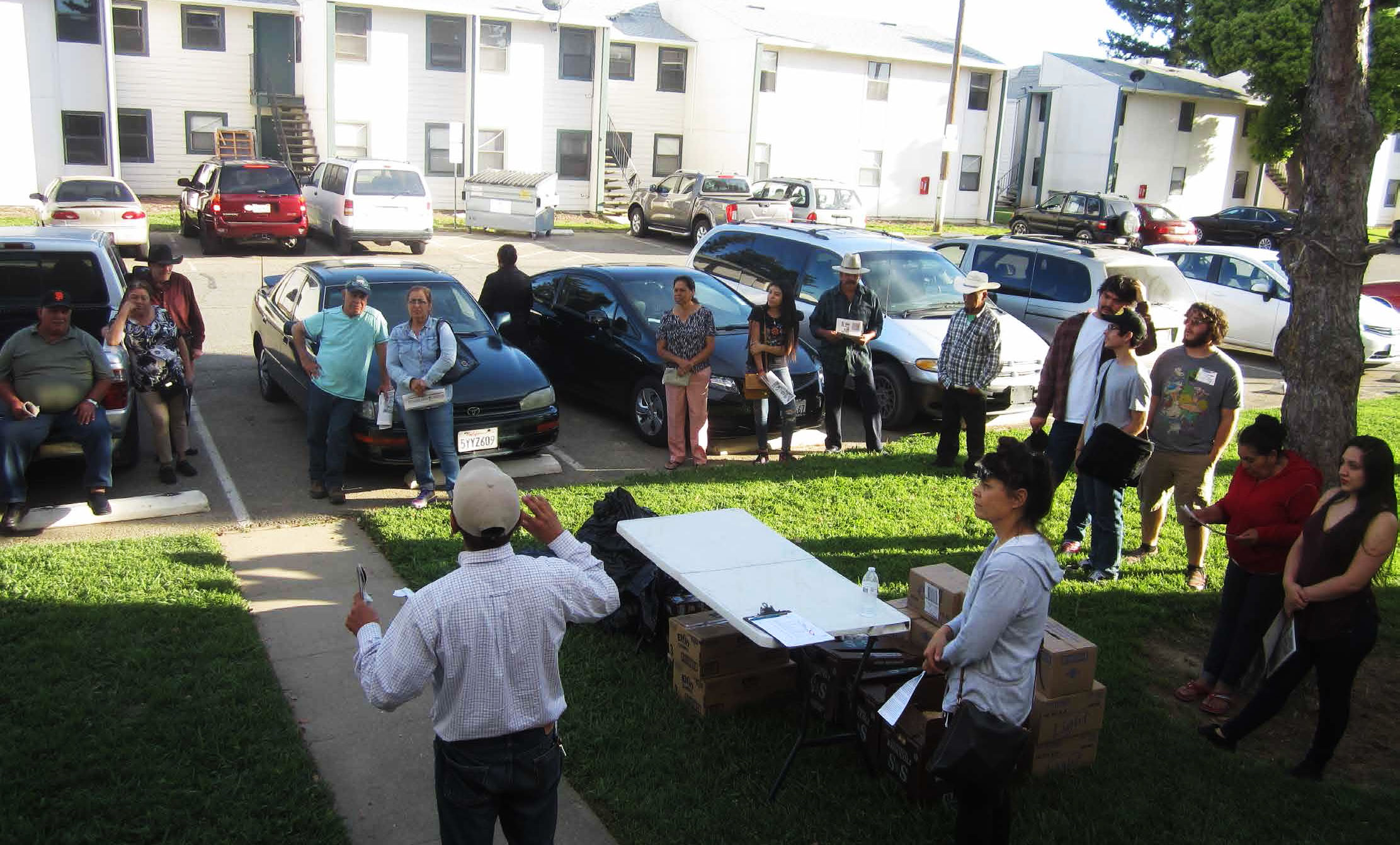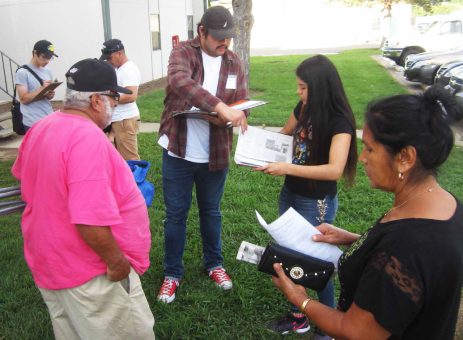
On International Labor Day, May 1, 2018. the Western Farm Workers Association (WFWA) got together for their first Operation Camp Crew of the season. In support of the United Nations Sustainable Development Goals (SDGs), student and community volunteers brought out food and signed up new members to provide a base of support for migrant workers arriving to the Yuba City Migrant Center. The people living at the camp are migrant workers from far away places, who will harvest crops like onions, tomatoes, watermelons, peaches, and other agriculture products here in the Sacramento Valley. The majority of the people came from Mexico and were ready to work and make a living to help provide for their families.
When it comes to migrant workers, they are in a new place with very little they could bring to the camp. A lot of migrant workers commented about coming but not knowing where they would be working.
A female migrant worker also shared her concerns, since it was her first year with little knowledge of the community and where her job was. Another resident was concerned about where they were placed to live, which was a completely different place from where they had been located last year, a unit they had maintained in excellent condition for several years on the promise that they would return to the same unit each year. Many of the residents have been coming to the camp for a very long time, several growing up in the camp and remembering coming with their grandparents as children.
WFWA, including myself, went out to welcome the migrant residents and to invite them to join us at a meeting located at the camp.
The goal was to educate as many workers as possible about what the Western Farm Workers Association represents and the benefits that they help provide for the lowest paid working families in the area.

WFWA deeply believes in changing the community by changing people’s hearts, encouraging them to help each other out . Juan Meleza, operation manager at WFWA, shared his worries for migrant workers. He is concerned that these migrant workers, who come from far away locations and also struggle in the unfamiliar new place that they’ve come to, sometimes do not have anywhere to stay because the camp has very few people who can help provide an environment for them. He is also concerned about the number of documents they have to provide before they even know if they qualify to stay, which makes it even more difficult. Sometimes people travel all these hours just to find out that the camp is full.
“What we need most is volunteers” said Meleza. “We also encourage lasting change in our community.”
WFWA knows that the distribution of food is not a complete solution to creatie that change, but with this base of support, members can help to fight the policies that prevent implementation of the SDGs.
WFWA Volunteers Coordinator Brandon Banthao talks about not only helping farm workers, but all of the people in the community. “It doesn’t matter what your ethnicity is, your background, or the color of your skin,” he says. “We are all working individuals in this community struggling to make a living, and I find it important to encourage others on helping each other out.”
To volunteer, donate, or get more information about how to become a member of WFWA, call (530) 790-0980.
Comment Policy: Comments are welcomed and encouraged. However, the editorial board reserves the right to edit or delete, without notice, any comments submitted to the blog. For more details, see our full Comment Policy.